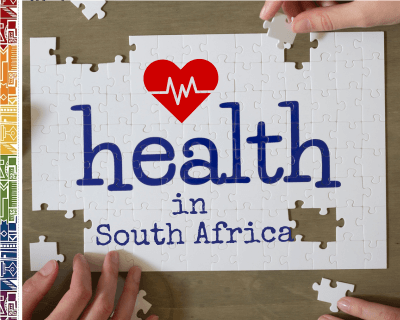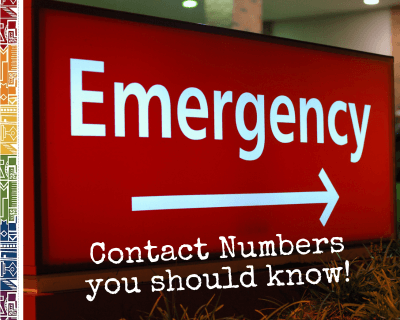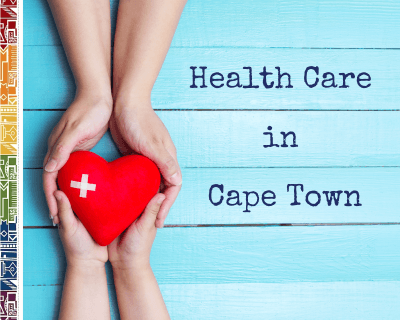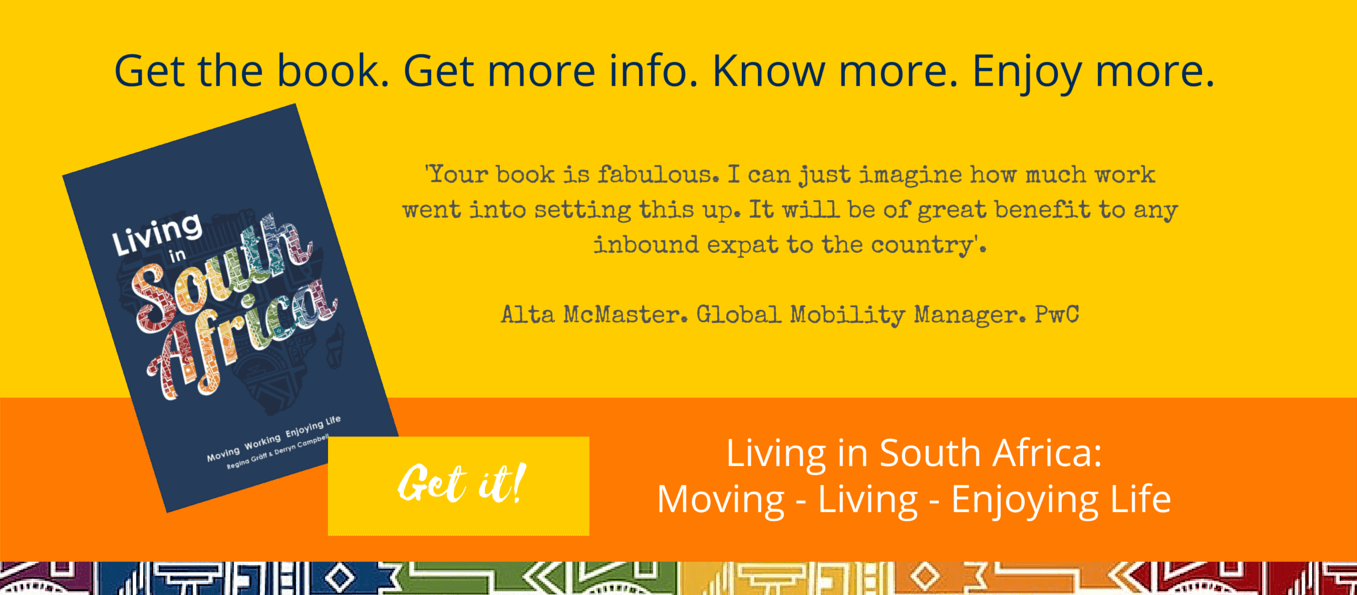South Africa Health
Your Expat Guide to Health Care in South Africa
South Africa Health Care - Overview
South Africa Health Care Overview: There is a dual structure in the South African health care system. The public health care sector serves the vast majority of the population (84%). Health care is funded by taxes and highly under-resources and there are long waiting times in public facilities. There are only about 0.8 doctors per 1,000 people, whereas the global average here would be 1.8 doctors for the same amount of people! In the USA there are 3.3. doctors and in Spain even 6.2 registered doctors for 1,000 people. And then we must note, that most of the South African medical staff is available in and around the major cities but rural areas are severely under serviced and even ambulance teams are extremely slow. Health insurance policies including medical evaluation are thus highly recommended.
However, almost half of the public health care funds are spent on the private sector which only serves about 16% of the population. The private sector is well equipped and the standard in the private health sector comparable to many European countries, but without medical insurance this service is unattainable by the majority of the population. There are about 400 public hospitals in South Africa and about 200 private hospitals. Especially the health facilities, clinics and hospitals in Cape Town, Johannesburg and Durban are world-class.
The main business centres in South Africa offer access to excellent treatment for all illnesses and diseases to the cash-paying private patient or those that have top medical aid plans. There are private specialist clinics and excellent hospital departments which offer first class treatment for any hospitalisation and intensive care requirements. Private hospital facilities are modern and the staff is in general not only very friendly, but also efficient and well-trained.
South Africa Health Care - Main Challenges
South Africa has the largest number of HIV/AIDS sufferers in the world. About 7.8 million people (19% of all adults) are HIV positive. Of these about 75% are on treatment. South Africa offers the world's largest antiretroviral therapy programme and due to the effort to lower the transmission numbers between affected mothers to their newborns, the transmission rate is declining steadily.
South Africa is amongst the countries most affected by the spread of tuberculosis (TB) as TB is often linked as HIV co-infection. About 60% of all TB-patients in South Africa are HIV-positive and the living situation in the townships exacerbates the spread of the virus. Also drug-resistant TB is a concern here.
Lifestyle related diseases such as obesity, diabetes and hypertension are prevalent in South Africa as well. Diabetes affects one in ten adults, almost half of all adults have high blood pressure and obesity is a major disease in South Africa, where two in three women and one in three men are overweight and obese.
There is a high rate of violence in South Africa, most crime is violent, with South Africa having one of the highest homicide rates in the world. Most crime is happening in the townships where there is a general lack of security and life support. Road traffic accidents can affect everybody and busy trauma wards, especially over the holiday season, are major burdens to the general health care system.
Diseases such as malaria and rabies are prevalent in some areas in South Africa. Malaria is seasonal and limited mainly to parts of the eastern provinces Limpopo Mpumalanga and KwaZulu-Natal. Whereas rabies is found all over the country, however, mainly in rural areas. Animal bites should be taken seriously everywhere though. Snake bites are rare occurences, general vigilance is key. Read more about vaccinations and infectious disease prevention on our special page.
South Africa Health | Private Medical Care | Emergency Centres
There are many new and very efficient private Cape Town hospitals where the standard of care is the same as you would expect from a private hospital in Europe, America or Australia. In these private hospitals you will find all the relevant departments from Audiology and Cardiology to ENT, Paediatry and Urology. They have access to the newest state-of the-art equipment and health care professionals who are well-trained and have often trained overseas too.
The private Cape Town hospitals all have access to ambulances and well trained emergency staff. Private ambulance teams not only have shorter response times, they also often better equipped and primarily serve the affiliated hospitals. ER 24 is affiliated with Mediclinic while Netcare belongs to Netcare Hospitals.
Private ambulance teams can be reached under these telephone numbers: 084 124 (ER24) and 082 911 (Netcare)
Emergency Health Care
Should you require immediate medical assistance, call the numbers below and tell them that you need an ambulance.
- 107 from landline or
- 112 from your cell/mobile phone
Save on your cell/mobile phone also this number: 021 480 77 00 under "All Emergencies" (emergency call center for Cape Town) and remember to save an "ICE" (In Case of Emergency)-contact number, should you be involved in an accident, too! There is a dedicated Poison Information Centre 021 689 5227 (available 24 hours a day) at Red Cross Children’s Hospital. Here you will also find useful info in regards to Poisoning.
For emergencies at the sea, contact the NRSI (National Sea and Rescue Service) at 112
Medical Centres and Private Practices
You can find good medical assistance in private South Africa health care: There are numerous health care centres, private day clinics at the hospitals or medical centers in and around Cape Town. The bigger medical centers also are affiliated with the private hospitals like Netcare or Medi-Clinic. The treatment is in general very good and most of the times you can choose your doctor.
If you want to see a specialist straight away and are a cash paying private patient you usually get you appointment immediately and do not have to wait for weeks.
Should you be looking for a general practitioner, dentist or specialist who speaks your language I would recommend you call the embassy for their trusted doctors and check my expat community section for your national group.
South Africa Health | Pharmacies and Chemists
For minor ailments it is customary in South Africa health care to just go to the next pharmacy or chemist. In Cape Town there are big pharmacy-chains like Durbell, Dischem,M-Kem or Clicks with a wide variety of over the counter medicines.
There is usually a pharmacist on the premises so you can ask and get advice if you should see a doctor to get a prescription. With minor ailments the pharmacists you are usually if you rely on their advice as most of them are well trained. Chemist counters are now often found even in the big supermarkets like Pickn' Pay, Checkers or Spar. The medical centers also often have their own chemist section as have the hospitals with their 24 hour facilities.
Private Health Care Costs in South Africa
As you have to pay your visits to the doctor or dentist up front, you should be sure your insurance will cover the fees. To get private treatment in Cape Town you are advised to take out a private insurance to cover any medical costs. In the big medical centers you can pay either cash or with debit card or credit card and rarely with cheques.
The doctor’s fee for a general consultation amounts usually to around R550 which is comparably lower to fees you would have to pay overseas to see a doctor. However, there will be co-payments asked for in pretty much all plans. Other fees which are only a general guideline:
- GP and Dentist Examination: From R600
- Pediatrician check up: From R650
- Specialist/surgeon consultation: From R900
- Physiotherapy or Biokineticist/ hour: From R550
Due to these comparably low prices the health care tourism is booming in Cape Town. However, choose your health insurance policy wisely as limits are much lower than overseas and health care policies usually ask for co-payment. Expensive or extensive treatment can be very costly and local insurance plans covering these costs are very costly and usually have lower payment limits than treatment costs would ask for. All-inclusive plans are very costly here (even reaching the basic state health care plans) are much more expensive here. There are many practices and clinics which offer special packets to visitors (!) from overseas. If you reside here, you only can ask for local tariffs but local health insurance/ medical aid plans often don't cover all payments and co-payments can get very expensive with serious ailments or if requiring extensive care (even compared to very basic overseas healthcare plans). See also our page about Health Care in Cape Town
South Africa Health | Diseases and Vaccinations
The are standard vaccinations that are highly recommended, such as the routine vaccinations MMR, tetanus, diphtheria, polio and influenza as well as hepatitis A and B and typhoid which are recommended. Rabies is only to be considered if you stay in an rural area. Yellow fever vaccinations are required if you arrive from a yellow fever endemic country - not if you directly come from the USA or Europe. However, if you have visited a yellow fever risk area such as Tanzania, Zambia, Zimbabwe or Kenya in the days before traveling into South Africa (or transited more than 12 hours in such a country), then you have to show proof of your vaccination.
There is no malaria in Cape Town and the Western Cape province. But some areas in the North West province, Limpopo, KwaZulu Natal and Mpumalanga as well as the Kruger Park area are malaria risk areas. See the map here. In affected areas you should take these precautions: dress in light colors, long sleeves and trousers and as soon as it gets dark put on mosquito repellent. Make sure you take your malaria prophylaxis. Taking the tablets might not avoid contracting the disease, but malaria should not give you severe or life-threatening symptoms. Always check with a doctor should you develop flu-like symptoms after having visited a malaria risk area.
In South Africa there is no yellow fever risk. However, if you have visited a yellow fever risk area such as Angola, Rwanda or Kenya before traveling into South Africa, you have to show proof of your vaccination.
No vaccinations are necessary for traveling into South Africa besides the yellow fever vaccination requirement mentioned above, however, you should have your vaccinations report card handy and up-to-date. It is highly recommended to get your refresher DTP (Diphtheria, Tetanus and Pertussis) vaccinations in time and Hepatitis A and B vaccinations are highly recommended by many doctors for South Africa. More info about other diseases and other health concerns in South Africa.
Regarding water & food safety: Tap water is safe in major cities, but bottled or boiled water is recommended for stays in rural areas. Always be cautious with undercooked meat and unpasteurised dairy and request your meat and eggs medium to well-done if worried about food-borne diseases. Remember that food hygiene and food refrigeration might not always be of high standard in basic food outlets or hostel accommodation, in townships, in rural areas or campsite with minimal and very modest facilities.
With the right travel insurance and medical aid plan, an up-to-date vaccination booklet, and taking the relevant malaria precautions (if needed for the area you are staying in), most visitors and expats will have a safe and healthy time in South Africa.
South Africa Health Insurance
International medical insurance cover: You should also make sure if your foreign medical insurance covers the cost for private South Africa health care and medical treatment in South Africa and evacuation should be included in your cover.
Local health insurance cover or medical aid: There are various local medical aid providers who offer comprehensive health care cover. Check out local providers such as Discovery or MomentumHealth and remember that you always need proof of medical aid/ insurance for your application for any work- or study visa. Should you not have private cover in your home country, it is time to take one out, if you get transferred to South Africa. For visa purposes, especially study visa, a local medical aid cover is mandatory.
International travel insurance for expats: If you are traveling a lot, you should make sure your medical aid cover also extends for your business trip destinations abroad, otherwise take out the necessary global travel insurance cover such as AIG or Allianz or Hollard. The local banks also offer global travel insurance plans. Should you want to extend your stay or visit but your foreign travel insurances does not allow extensions, then apply for a new cover for the extended period from Safetywing or World Nomads.
South Africa Health - Page by ExpatCapeTown: Last updated on 16 September 2025





